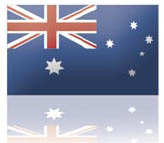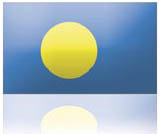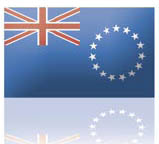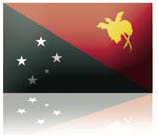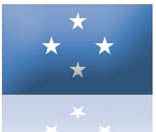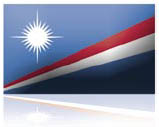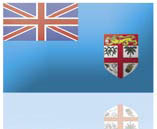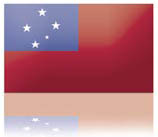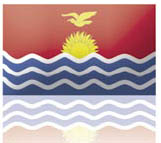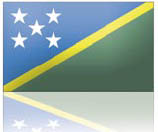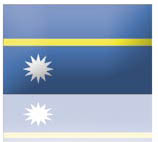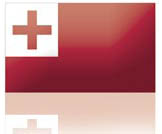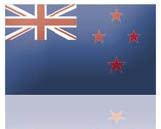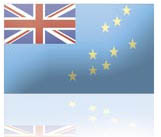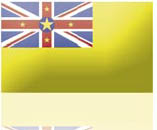 |
 |
 |
| Home Regional Office | Events | Media Centre | Issues | International Law | Human Rights Bodies | Contact us |
|
Geneva deals with complaintsVERENAISI RAICOLA
Times: Tell me a little about yourself and what your work involves? David: I am the regional representative of the office of the UN high commissioner for human rights, the leading agency within the UN system dealing with issue concerning human rights. We opened an office in Fiji in 2005. Within the UN system we are one of the smallest agencies and we cover the 16 Pacific countries, including from Fiji, Papua New Guinea to New Zealand. Mainly our work involves encouraging states to rectify international human rights treaties and, of course, encouraging them to implement the nine core treaties. We offer technical assistance, capacity building and training to all sectors of society within the state machinery. We link with governments, the judiciary and parliaments as well as non-government organisations in order to improve and enforce human rights in the region. Times: You mentioned working with governments, now that the democratically-elected Qarase Government has been ousted are you working with the militarys Interim Regime instead? David: We have some working contacts with the interim regime but because of the events of December 5, 2006, we will have to rebuild our working contacts. Times: How would you describe working in Fiji before the military clean up campaign started to date? David: It is an interesting region and Fiji is a very interesting country with a relatively small population but many appealing issues within the field of human rights. This includes the water supply problems and how some have been deprived of such a basic necessity water. It is our right to access water. Water is not simply a service. Typically there are challenges in Fiji, as well as the region, that relate to human rights. We hope we bring in an added value to solve these issues whether they are economic, social or political issues. Times: Has the water issue ever been raised specifically with your office? David: When the privatisation of water was first discussed we made a submission to the committee dealing with it so we have provided how this can take place within the human rights framework. This is an example of how privatisation can take place within our framework. Times: There have been criticisms raised on the inefficiency of the Fiji Human Rights Commission as people have been rounded up by the military, questioned and physically abused at Queen Elisabeth Barracks after December 5, 2006. What can you say about this as some have stated that the commission is leaning too much towards the interim administration and its independence and integrity has been questioned. David: UN representatives, because of our rules of engagement being impartial and independent, do not comment on local situations. But, if we make a comment it will come from our head office in Geneva. That has not happened but it would certainly be forwarded to you if it does come. Times: Your organisation deals with the abuse and violations of peoples rights. Locally we have the Fiji Human Rights Commission that deals with such abuses. Have you been liaising with them at all since December 5, 2006? David: As a neutral and impartial organisation we are always open to dialogue. We are in contact with everyone that desires to maintain our contacts. We have been in contact with the FHRC since December. Times: How many reports of human rights violations have you received since the military takeover in December? David: Under the UN Human Rights Council there are mechanisms that allow any individual in Fiji and any other country in any kind of situation to submit complaints of alleged human rights violations. These mechanisms that have been established by states and approved by the general assembly are used any time by citizens of any part of the world. We receive about 1500 complaints a year covering all issues from the right to housing to the right to be protected from discrimination, torture or ill treatment. There are 28 areas where people can file complaints. In the case of Fiji, we have received a few complaints before the events of December 5. Since the events we have received complaints under the special procedures mandate and for several reasons they are completely confidential. I cannot say anymore. All I can say is that these mechanisms have been used before and are being explored today. Times: Why is it vital for a body like the FHRC to be independent and neutral in a crisis like ours? David: Independence is a basic criteria when you work in the field of human rights in general, regardless of whether you are in a situation of crisis. You need to be able to stand for principles and not bend to any policy that will cause conflict. Human rights work requires independence whether you are working as an individual or in an institution. Human rights work requires you to be able to keep your distance with events to allow you to be capable of analysing these events against human rights standards and bench marks. Independence is a key criteria. But of course we can go on debating what independence means and where do you define the lines. Times: Some people, including human rights activists, have been under UN protection as they fear for their lives. Could you elaborate on how someone qualifys for that? David: May be you should ask the individuals about the UN protection and what it means. Some times protection simply means that the UN is looking into the cases. The process is simple because many people today have access to technology. To file complaints the easiest way is to go directly to our website. Peoples identity remains confidential between the UN, the alleged victim and the Government. What is important to note is that not all complaints are followed-up because of lack of credible or sufficient evidence and information. Anyone can file complaints but only the genuine ones are investigated. Times: Are the complaints referred to a court of law or how are they scrutinised? David: This is not a judicial process. It is mainly a kind of follow-up case where the UN works with the Government for remedies. Times: Is there a time frame given on when the complainant would receive a feedback from the UN? David: It depends on which cases are followed up because all cases are referred to Geneva but usually it takes a year. All this is based on the goodwill of local authorities to cooperate in resolving the case. All these reports by special repertoires will be made public to the human rights council. These reports are accessible on the UN websites and all countries case summaries will be available a year after they are lodged. Times: What if the Government of the day refuses to cooperate in detailed investigations of complaints? David: The UN will not be able to force anything except that the full reports will still be available to all on the websites at the end of it all, regardless of whether individual governments support it. |
|
|||||||||||||||||||||||||||||||||||||||||||||||
| © OHCHR Regional Office Pacific Region 2007 |

